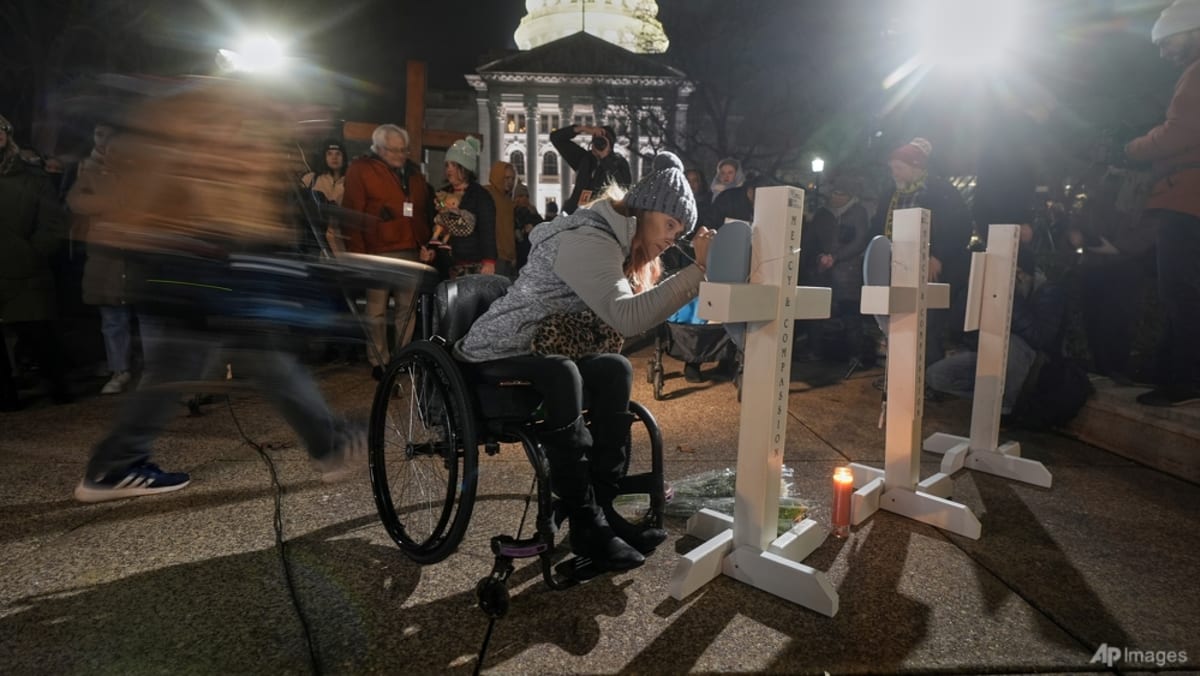The US welcomes the new Palestinian government following its repeated calls for political reform

JERUSALEM — The United States has welcomed the formation of a new Palestinian autonomy government, signaling it is accepting the revised Cabinet lineup as a step toward Palestinian political reform.
The Biden administration has called for “revitalizing” the West Bank-based Palestinian Authority in hopes that it can also administer the Gaza Strip once the Israel-Hamas war ends. The war erupted nearly six months ago, triggered by an Oct. 7 Hamas attack on southern Israel.
In a statement late Friday, U.S. State Department spokesperson Matthew Miller said the United States looks forward to working with the new group of ministers “to deliver on credible reforms.”
“A revitalized PA is essential to delivering results for the Palestinian people in both the West Bank and Gaza and establishing the conditions for stability in the broader region,” Miller said.
The Palestinian Authority administers parts of the Israeli-occupied West Bank. It is headed by Palestinian President Mahmoud Abbas, who has not faced an election in almost two decades.
The United States sees the Palestinian Authority as a key part of its preferred plans for post-war Gaza. But the authority has little popular support or legitimacy among Palestinians, with many viewing it as a subcontractor of the occupation because of its security cooperation with Israel in the West Bank.
Earlier this month, Abbas tapped Mohammad Mustafa, a U.S.-educated economist, as prime minister. On Thursday, Mustafa named his new lineup. It includes relatively unknown technocrats, but also Abbas’ interior minister and several members of the secular Fatah movement he leads. Several of the ministers are from Gaza, but it’s not clear if they are currently living there.
The Islamic militant group Hamas, a rival of Abbas, drove his security forces from Gaza in a 2007 takeover. The United States wants a reformed Palestinian Authority to return and administer Gaza, an idea that has been rejected by both Israel and Hamas.
A major challenge for the Palestinian Authority, should it be given a role in administering Gaza, will be reconstruction. Nearly six months of war has destroyed critical infrastructure including hospitals, schools and homes as well as roads, sewage systems and the electrical grid. Airstrikes and Israel’s ground offensive have left more than 32,000 Palestinians dead, according to local health authorities. The fighting has displaced over 80% of Gaza’s population and pushed hundreds of thousands to the brink of famine, the U.N. and international aid agencies say.
The war began after Hamas-led militants stormed across southern Israel on Oct. 7, killing 1,200 people, mostly civilians, and taking about 250 others hostage.
Israel has said it will maintain open-ended security control over Gaza and partner with Palestinians who are not affiliated with the Palestinian Authority or Hamas. It’s unclear who in Gaza would be willing to take on such a role.
Hamas has warned Palestinians in Gaza against cooperating with Israel to administer the territory, saying anyone who does will be treated as a collaborator, which is understood as a death threat. Hamas has rejected the formation of the new Palestinian government as illegitimate, calling instead for all Palestinian factions, including Fatah, to form a power-sharing government ahead of national elections, which have not taken place in 18 years.
___
Find more of AP’s war coverage at https://apnews.com/hub/israel-hamas-war
Source: abc news















